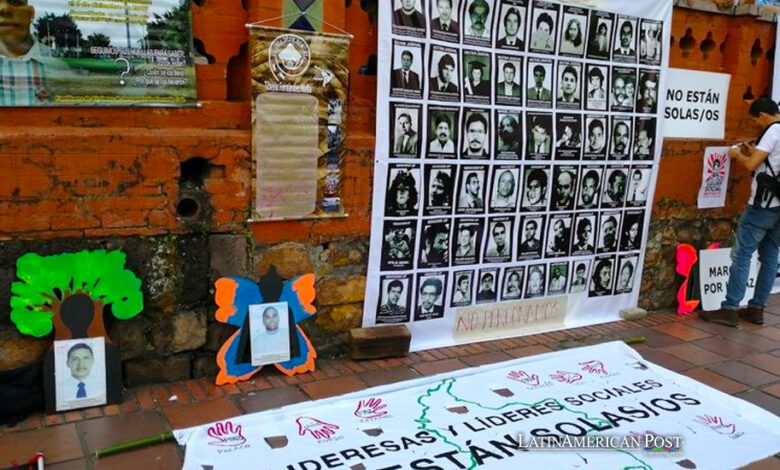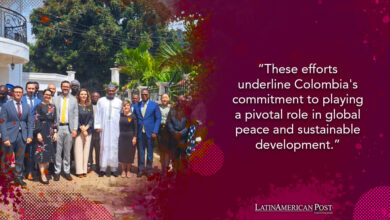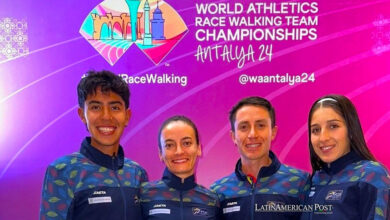Colombia’s Ongoing Struggle: Protecting Social Leaders Amidst Shadows of Violence

Amidst the lush landscapes and vibrant culture of Colombia lies a dark underbelly of violence that refuses to subside. For decades, the country has grappled with internal armed conflicts, leaving a staggering toll of 450,000 lives lost. In response to this tragic legacy, President Gustavo Petro introduced his “total peace” policy, a beacon of hope for a nation yearning for stability. However, the recent surge in violence against social leaders has cast a shadow of doubt on the efficacy of this ambitious endeavor.
The Disturbing Reality of Violence in Colombia
“It’s an unacceptable situation that last year, on average, a social leader or human rights defender was murdered every two days in Colombia,” lamented Ombudsman Carlos Camargo. These words underscore the grim reality confronting Colombians daily, where courage is met with tragedy, and advocacy for human rights exacts an unimaginable toll.
The heroes of Colombia’s social fabric, these activists and defenders, tirelessly work towards ensuring justice, equality, and the protection of fundamental rights for their fellow citizens. However, their noble efforts come at a heavy price. The assassinations persist despite President Petro’s commitment to peace, leaving communities shattered and families bereaved.
Carlos Camargo emphasized the gravity of each loss: “Every life lost is a tragedy for their families, for the communities, and for the defense of fundamental rights in the country.” Indeed, these are not just numbers on a statistic sheet; they are lives extinguished prematurely, leaving indelible voids in the hearts of those they leave behind.
Violence in Colombia’s Most Dangerous Regions
Colombia’s most perilous regions, such as Cauca, Antioquia, and Narino, continue to bear the brunt of this violence. The ombudsman’s office attributes this phenomenon to the presence of illegal armed groups, illicit gold mining, and the cultivation of coca, the chief ingredient in cocaine. In these areas, the struggle for control over resources intertwines with the quest for justice, creating a volatile mix that engulfs social leaders in a relentless cycle of danger.
The international community and human rights organizations have voiced their outrage at these atrocities, demanding that the Colombian government take decisive action to protect its social leaders. Advocacy groups and concerned citizens alike have rallied for change, emphasizing that the time for action is long overdue.
To address this crisis, Colombian authorities must focus on multiple fronts. Firstly, ensuring the safety and security of social leaders is paramount. Robust protection measures, including increased law enforcement presence and community support, are essential to dissuade potential perpetrators. Moreover, dismantling illegal armed groups and cracking down on illicit activities must be a priority to create an environment where these leaders can thrive without fear.
Fostering Dialogue for Lasting Peace
Additionally, fostering dialogue and collaboration between the government and social leaders is vital. A cooperative approach that includes these grassroots activists in the decision-making process can help address the root causes of violence and pave the way for lasting peace.
The fight for Colombia’s future is not confined to its borders; it resonates globally as a struggle for human rights and social justice. The international community must continue to exert pressure on the Colombian government to take decisive action. Sanctions, diplomatic efforts, and partnerships with organizations dedicated to human rights can bolster the cause and hold those responsible for the violence accountable.
Colombia’s Journey Toward Reconciliation
As Colombia strives for a brighter, more peaceful future, the sacrifices made by its social leaders must not be in vain. The nation’s journey toward reconciliation and stability depends on its ability to protect those who champion its values and aspirations.
Also read: Bolivia’s Monumental Cocaine Seizure: Uncovering the Hidden Drug Trade Routes
In the face of adversity, Colombia stands at a crossroads. It can choose to embrace a path that values the lives and contributions of its social leaders, or it can continue down a perilous road marred by violence and despair. The choice is clear: it’s time to safeguard the heroes of Colombia’s social fabric, for their resilience and determination embody the nation’s unwavering spirit in the pursuit of justice and peace.




